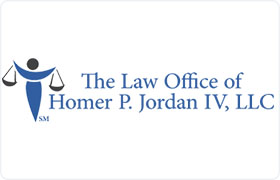Waleska Child Custody Lawyer, Georgia
Sponsored Law Firm
-
 x
x

Click For More Info:
-
The Law Office of Homer P. Jordan IV, LLC
125 Townpark Drive Suite 300 Kennesaw, GA 30144» view mapDivorce & Family Law Legal Solutions for a Brighter Tomorrow
At The Law Office of Homer P. Jordan IV, LLC in Kennesaw, we are dedicated to helping clients throughout the Atlanta area, including Cobb, Cherokee and Paulding counties.
800-590-3350
Includes: Guardianships & Conservatorships, Custody & Visitation
Patrick Leh Meriwether
Divorce & Family Law, Divorce, Child Custody, Adoption
Status: In Good Standing
 Homer Jordan Kennesaw, GA
Homer Jordan Kennesaw, GA AboutThe Law Office of Homer P. Jordan IV, LLC
AboutThe Law Office of Homer P. Jordan IV, LLC Practice AreasExpertise
Practice AreasExpertise
